Filter by
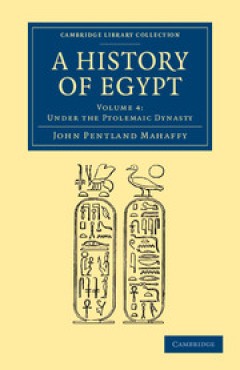
A History of Egypt
Published in six volumes between 1894 and 1905, this collection served as a valuable reference work for students and scholars of Egyptology at a time when ongoing archaeological excavations were adding significantly to the understanding of one of the world's oldest civilisations. At the forefront of this research was Sir William Matthew Flinders Petrie (1853–1942), whose pioneering methods ma…
- Edition
- -
- ISBN/ISSN
- 9781107325173
- Collation
- -
- Series Title
- Cambridge Library Collection - Archaeology
- Call Number
- -
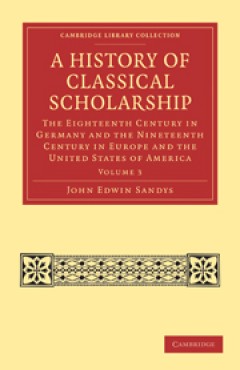
A History of Classical Scholarship
Sir John Edwin Sandys (1844–1922) was a leading Cambridge classicist and a Fellow of St. John's College. His most famous work is this three-volume History of Classical Scholarship, published between 1903 and 1908, which remains the only large-scale work on the subject to span the entire period from the sixth century BCE to the end of the nineteenth century. The history of classical studies wa…
- Edition
- -
- ISBN/ISSN
- 9780511903731
- Collation
- -
- Series Title
- Cambridge Library Collection - Classics
- Call Number
- -
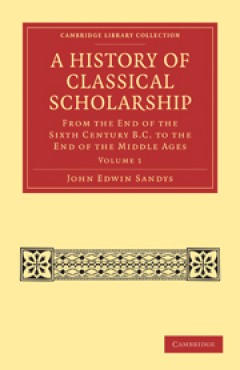
A History of Classical Scholarship
Sir John Edwin Sandys (1844–1922) was a leading Cambridge classicist and a Fellow of St. John's College. His most famous work is this three-volume History of Classical Scholarship, published between 1903 and 1908, which remains the only large-scale work on the subject to span the entire period from the sixth century BCE to the end of the nineteenth century. The history of classical studies wa…
- Edition
- -
- ISBN/ISSN
- 9780511903731
- Collation
- -
- Series Title
- -
- Call Number
- -
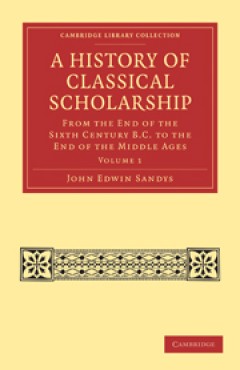
A History of Classical Scholarship
Sir John Edwin Sandys (1844–1922) was a leading Cambridge classicist and a Fellow of St. John's College. His most famous work is this three-volume History of Classical Scholarship, published between 1903 and 1908, which remains the only large-scale work on the subject to span the entire period from the sixth century BCE to the end of the nineteenth century. The history of classical studies wa…
- Edition
- -
- ISBN/ISSN
- 9780511903717
- Collation
- -
- Series Title
- Cambridge Library Collection - Classics
- Call Number
- -

A Greek Grammar Accidence and Syntax for Schools and Colleges
John Thompson (c.1866–1936) was Classics master and headmaster (1908–27) at the prestigious High School, Dublin. A competent linguist, he translated from German, produced a Latin primer, and wrote a Sanskrit course, though he opposed the teaching of Irish. He became a Member of the Royal Irish Academy (1912), President of the Classical Association (1918) and was appointed Officier d'Académ…
- Edition
- -
- ISBN/ISSN
- 9781139333825
- Collation
- -
- Series Title
- Cambridge Library Collection - Classics
- Call Number
- -
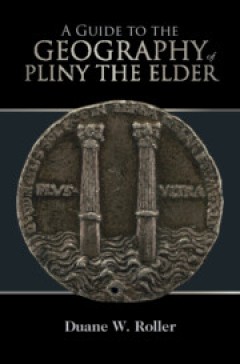
A Guide to the Geography of Pliny the Elder
This is the first thorough English commentary on the geographical books of Pliny the Elder, written in the AD 70s. Pliny's account is the longest in Latin, and represents the geographical knowledge of that era, when the Roman Empire was the dominant force in the Mediterranean world. The work serves both cultural and ideological functions: much of it is topographical, but it also demonstrates th…
- Edition
- -
- ISBN/ISSN
- 9781108693660
- Collation
- -
- Series Title
- -
- Call Number
- -
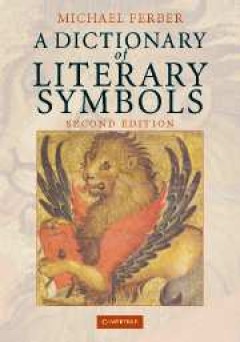
A Dictionary of Literary Symbols
This is the first dictionary of symbols to be based on literature, rather than 'universal' psychological archetypes or myths. It explains and illustrates the literary symbols that we all frequently encounter (such as swan, rose, moon, gold), and gives hundreds of cross-references and quotations. The dictionary concentrates on English literature, but its entries range widely from the Bible and c…
- Edition
- -
- ISBN/ISSN
- 9780511481475
- Collation
- -
- Series Title
- -
- Call Number
- -
 Computer Science, Information & General Works
Computer Science, Information & General Works  Philosophy & Psychology
Philosophy & Psychology  Religion
Religion  Social Sciences
Social Sciences  Language
Language  Pure Science
Pure Science  Applied Sciences
Applied Sciences  Art & Recreation
Art & Recreation  Literature
Literature  History & Geography
History & Geography